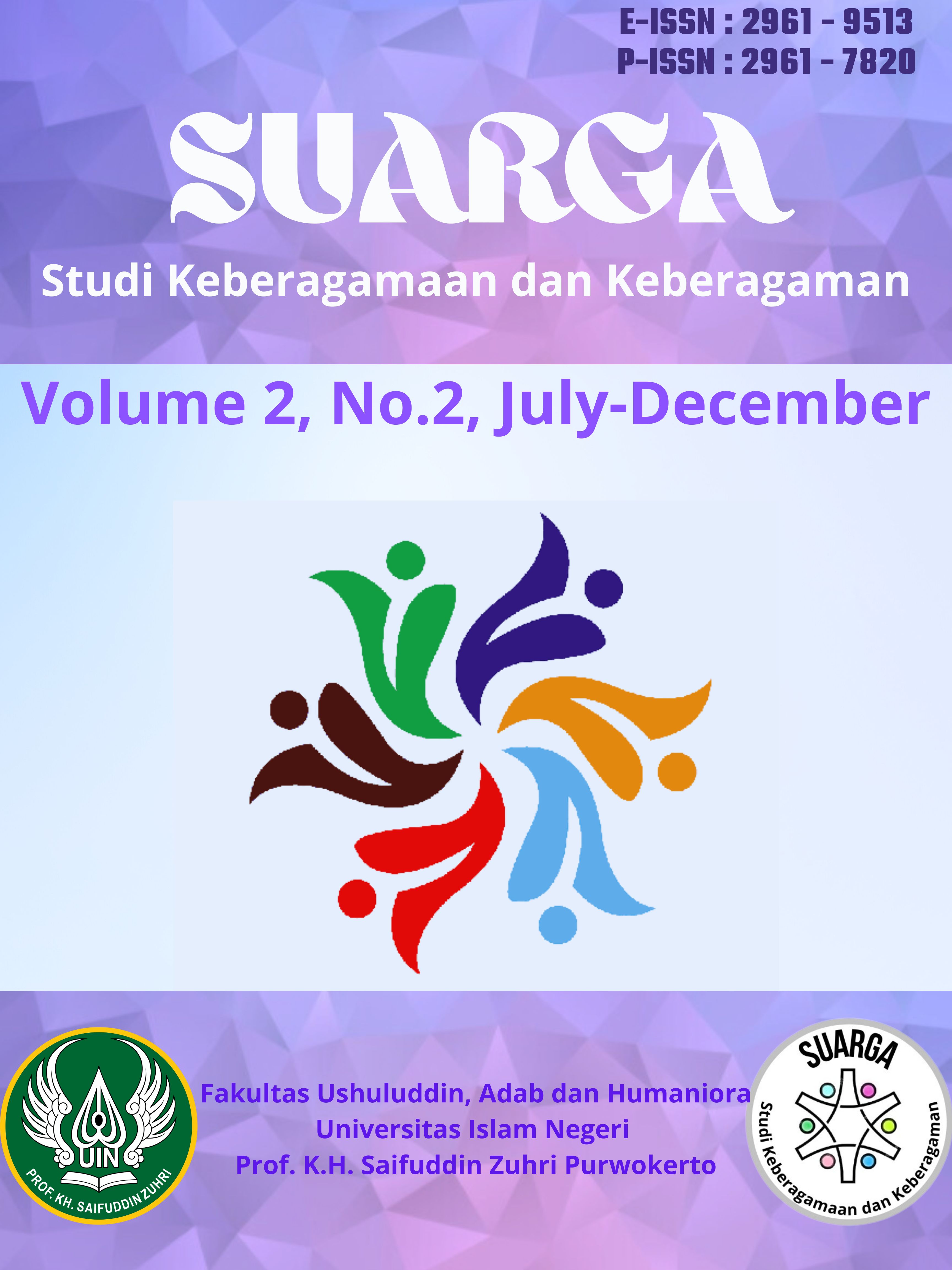The Perennialism Approach toward the Unity of Religions
DOI:
https://doi.org/10.24090/suarga.v2i2.9635Keywords:
perennialism, interreligious dialogue, religious multiplicityAbstract
The formation of a sound interreligious dialogue concept is essential if different religious believers are to coexist peacefully. Many well-known religious experts have been working very hard to establish a foundation for interreligious discussion. Some of them have made an effort to conceptualize the notions of religious unity, in which all the many religions in this multireligious world could find common ground. placed. Let's start by looking at how people now interact with religion. People who argue that all religions' teachings are relative reject the idea that every one of them conveys the absolute truth. This is one of several kinds of human attitudes toward religion. They can be categorized as "relativists." People who reject all other religions and only accept their own as absolute are in the second group. This concept might be referred to as "exclusivism." People who look for a means to accept all religions as true fall into the third type. "Universalism" is the concept in question. We now have a better understanding of how people respond to the diversity of religions in "a highly globalized world," but we must ask again: how did people learn to adopt these mindsets?References
Brewer, Ken (2001). “The Ethics of Jerusalem and The Morals of Athens: Assesing Hans Küng’s Theological Ethics”. In The Asbury Theological Journal Spring 2001 Vol. 56 No. 1.
Fuller, Robert C. (2001). Spiritual, But not Religious: Understanding Unchurched America. Oxford & New York: Oxford University Press.
James, William (1902). The Varieties of Religious Experience. Mineola: New York Dover Publications, Inc.
Kung, Hans (1991). Global Responsibility: In Search of a New World Ethic, trans by John Bowden. London: SCM Press..
Huss, Boaz (2015). “The Sacred is The Profane, Spirituality is not Religion: The Decline of The Religion/Secular Divide and The Emergence of The Critical Discourse on Religion”. In Method and Theory in the Study of Religion 27 (2015) 97-103.
Nasr, Seyyed Hossein (1989). Knowledge and The Sacred. New York: State University of New York Press.
__________________ (2007). “Living in a Multi-Religious World” in William C. Chittick (ed.) The Essential Seyyed Hossein Nasr. Canada: World Wisdom Inc.
Perry, Whitall (1971). A Treasury of Traditional Wisdom. London: Allen & Unwin.
Schuon, Frithjof (2005). The Transcendent Unity of Religions. Wheaton Illinois: Quest Books
Downloads
Published
How to Cite
Issue
Section
License
Copyright (c) 2023 Brian Trinanda Kusuma Adi (Author)

This work is licensed under a Creative Commons Attribution 4.0 International License.


















